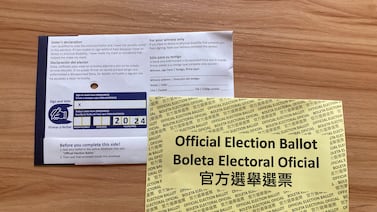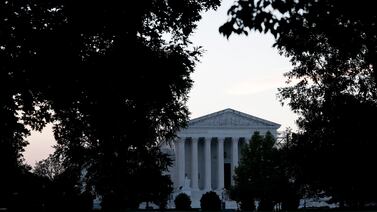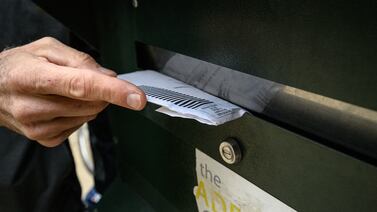Pennsylvania’s Mail Ballot Date Requirement
In 2019, Pennsylvania enacted a date requirement for mail ballot return envelopes. The requirement has been the subject of many lawsuits.
A look at judicial retention races, poll worker contests, and the latest twist on mail voting
A pair of decisions from the court combine to guarantee the state’s voters some recourse if they make a mistake on their ballot, such as a missing signature or date.
After years of back-and-forth court rulings, voters may finally get some clarity on a disputed election rule.
The policy has been the subject of a back-and-forth court battle over burdens on voting.
The requirement in state law is a small burden, the judge says, but the state has no compelling reason to enforce it.
Rejection rates are lower in Pennsylvania counties that let voters fix errors, highlighting the impact of disparities in election rules.
A decision could resolve challenges to rules in a 2019 law that have led to thousands of ballots being rejected.
After repeatedly declining to rule on the merits of challenges, the Supreme Court put its foot down with the three counties: “Comply with the prior rulings of this court.”
A few counties opted to accept ballots with missing or incorrect dates, prompting a challenge from Republicans.
The ruling does not apply directly to the November election, but adds another complication for counties
Justices deny RNC request to block ruling to give voters a second chance if their mail ballots were rejected.
Policies on date requirement and ‘notice and cure’ stay unchanged after voting rights groups and Republicans lose their bid for emergency intervention.
The federal case is separate from litigation pending in the state Supreme Court, and is unlikely to be resolved before November.
A ruling before November could affect thousands of mail ballots at risk of rejection.
The ruling sets the stage for another state Supreme Court decision before the November election
The decision could affect thousands of mail voters in November’s election.
Disenfranchising citizens over ‘inconsequential paperwork errors’ violates voting rights, a state court says. The GOP will appeal.
Disputes involve provisional ballots, ‘notice and cure’ procedures, and the date requirement.
The ACLU and the Department of State say election officials don’t use the handwritten dates on ballot envelopes for anything. GOP lawyers say they could be a tool against fraud.
The directive seeks to cut down on ballot rejections and resolve inconsistencies in county policies.






